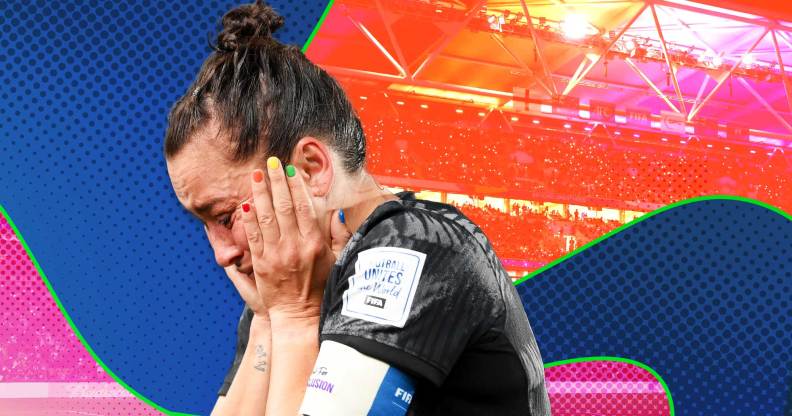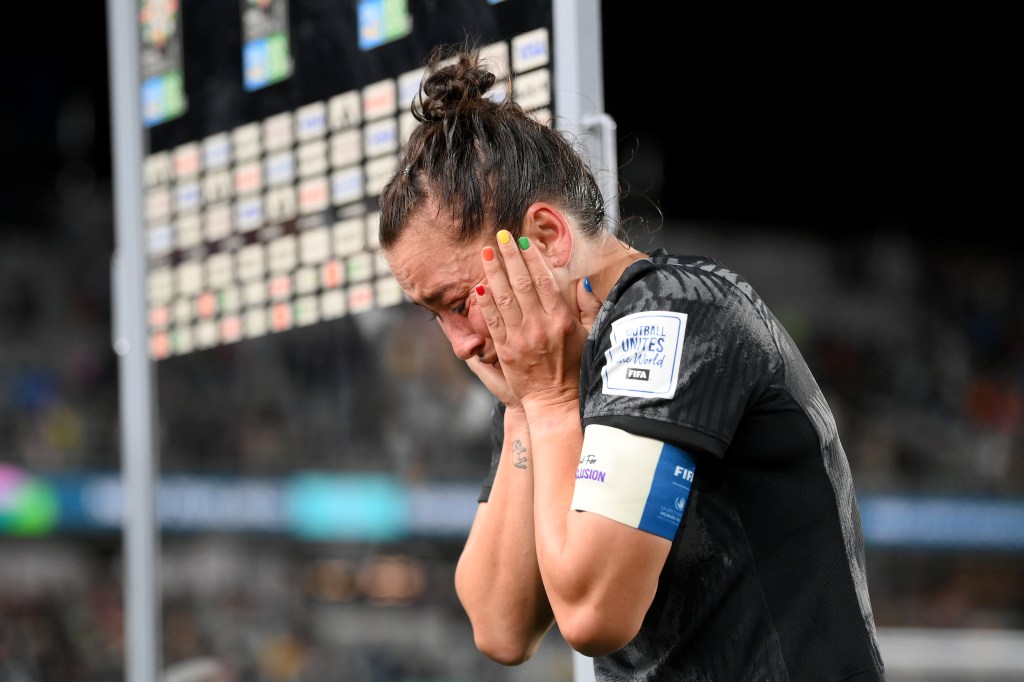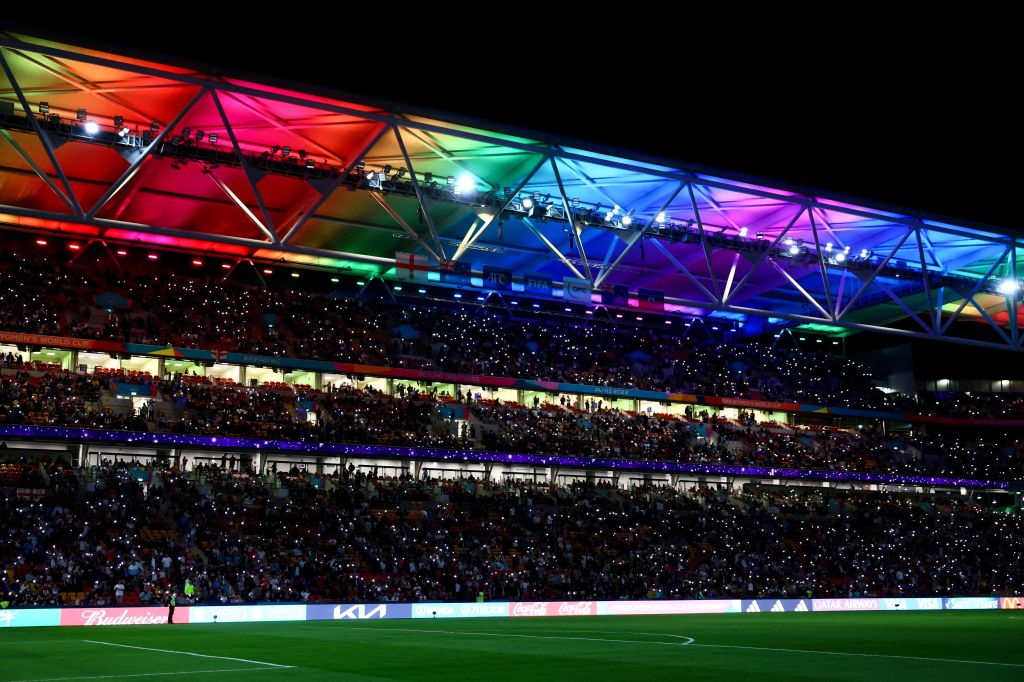How Women’s World Cup players are defying FIFA’s Pride rainbow ban

New Zealand player Ali Riley wore rainbow coloured nails at a recent match in the Women’s World Cup. (Credit: Getty Images)
New Zealand player Ali Riley wore rainbow coloured nails at a recent match in the Women's World Cup. (Credit: Getty Images)
Players at this year’s Women’s World Cup have been finding subtle ways to bring LGBTQ+ Pride to the pitch, despite a ban on rainbow armbands by governing body FIFA.
From hair, to nails and “gay lights”, LGBTQ+ Pride has still managed find its way on to one of football’s biggest stage, with sneaky nods to the community being spotted by eagle-eyed fans and pundits.
At the beginning of July, the game’s world governing body confirmed the ban on rainbow and OneLove armbands – which show support for LGBTQ+ rights – would continue at the Women’s World Cup in Australia and New Zealand, following controversy at the men’s tournament in Qatar, where gay sex is against the law, last year.
The armband created controversy during the men’s competition when a number of national teams planned to wear it on the pitch, only backing down after the threat of heavy sanctions by FIFA.
This time around FIFA has, instead, created eight sanctioned armbands with the aim of highlighting a variety of social justice causes.
The messages on the armbands are: Unite for Inclusion, Unite for Indigenous Peoples, Unite for Gender Equality, Unite for Peace, Unite for Education for All, Unite for Zero, Unite for Ending Violence Against Women, and Football is Joy, Peace, Love, Hope and Passion.
It has been widely noted that none of the armbands explicitly support LGBTQ+ rights, despite the fact this year’s World Cup features a record number of out queer players.
However, although not obvious, the Unite for Inclusion armband does share the same colours as the ones on the OneLove armband: red, black and green are the colours of the Pan-African flag and represent race and heritage, while the pink, yellow and blue are the same colours as the pansexual flag and signal all gender identities and sexual orientations.
Despite the ban at the tournament, players are taking a defiant – if subtle – stand for LGBTQ+ rights.
Stepping out in style to South Africa’s opening game against Sweden, forward Thembi Kgatlana rocked an amazing rainbow undercut.
Images of the colourful hairdo quickly spread on social media, with South African fans and others stating their love for Kgatlana’s rainbow locks.
“Players are not holding back from showing their pride at the World Cup this summer,” Women’s Sport Exchange said of Kgatlana.
Elsewhere in the tournament, New Zealand captain Ali Riley gained new fans across the world when they spotted her Pride-coloured nails.
One featured the classic colours of the rainbow Pride flag while the other featured the colours of the trans flag: blue, pink and white.
The nails were on full show during Riley’s emotional television interview after her team beat Norway 1-0.
One fan tweeted: “FIFA said ‘you can’t show support for LGBTQ people during games. No armbands’. Ali Riley, New Zealand captain: ‘Try and stop me’. Look at her hands.”
Another fan wrote: “Right hand: 🏳️⚧️ Left hand:🏳️🌈 Are there still people out there wondering why we love Ali Riley so much?”

It is not just the players who appeared to bring the Pride, as Brisbane Stadium lit up in all its rainbow glory at half time during England’s Women’s World Cup opening match with Haiti.
Of course, it’s unconfirmed that these colourful lights were for the LGBTQ+ community and not just a pretty multi-colour offering for fans, but that didn’t stop people airing their thoughts.
“FIFA may have banned OneLove but they can’t ban gay lights,” football journalist Emily Keogh said.
One fan simply opted to say: “FIFA 0 Brisbane Stadium 1.”
Another, with a nod to Taylor Swift’s lyrics in “You Need to Calm Down”, said: “Shade never made anybody less gay, FIFA x.”

In a statement on the release of the Unite armbands, FIFA president Gianni Infantino said: “Football unites the world, and our global events, such as the FIFA Women’s World Cup, have a unique power to bring people together and provide joy, excitement and passion.
“But football does even more than that. It can shine the spotlight on very important causes in our society. After some very open talks with stakeholders, including member associations and players, we have decided to highlight a series of social causes, from inclusion to gender equality, from peace to ending hunger, from education to tackling domestic violence, during all 64 matches at the Women’s World Cup.”

